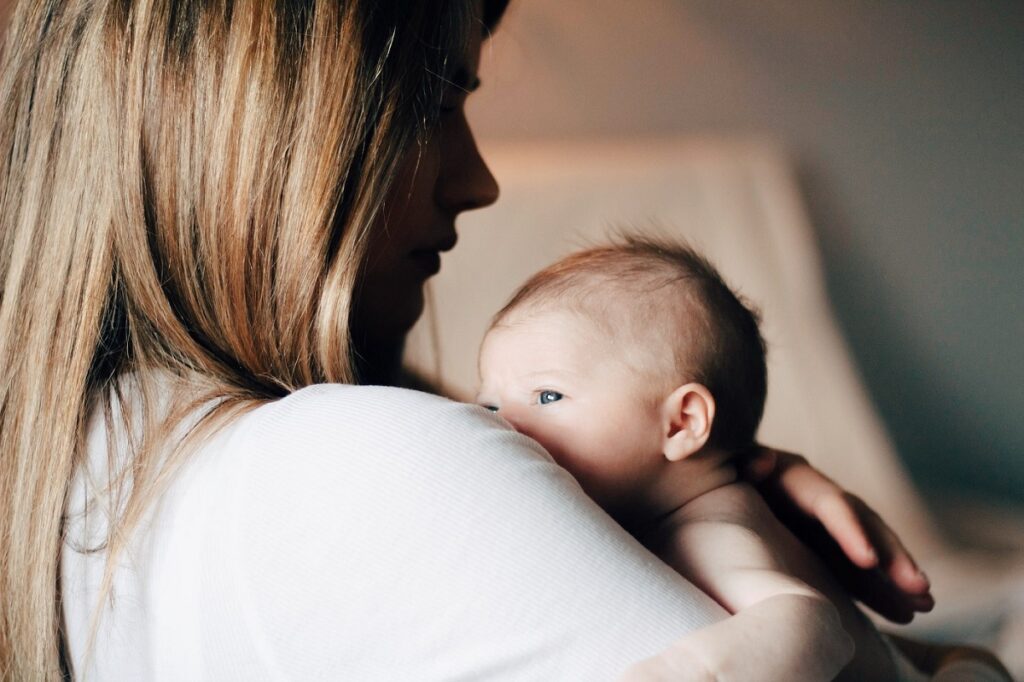What is Mom Guilt?
Mom guilt refers to the feelings of inadequacy, self-doubt, and worry that many mothers experience in relation to their parenting abilities. It can arise from a variety of sources, such as not spending enough time with their children, making mistakes or poor decisions, feeling like they aren’t doing enough for their children, or even prioritizing their own needs. These feelings of guilt can lead to anxiety, depression, and a sense of overwhelm, and can affect a mother’s mental health and well-being. Mom guilt is a common experience for many mothers, but it’s important to remember that no one is a perfect parent, and self-compassion and self-care can go a long way in easing these feelings.
It’s important to note that it is a subjective experience and can vary from person to person. It is a complex emotional response that can be influenced by societal pressures, personal beliefs, and individual circumstances. Addressing this involves recognizing and challenging these feelings, practising self-compassion, seeking support from loved ones or professional resources, and finding a balance for the mother and her family.

Is it normal?
Yes, it is normal to experience mom guilt. Many mothers experience feelings of guilt or self-doubt at some point in their parenting journey. The experience of mom guilt can be influenced by a range of factors, such as societal pressures, personal beliefs, and individual circumstances, and can vary from person to person. It is a complex emotional response that can arise from a mother’s desire to provide the best possible care for her children, but also from a sense of responsibility and concern for their well-being.
It is important to recognize that experiencing mom guilt is normal and does not necessarily mean that a mother is failing or doing something wrong. Addressing these feelings and seeking support can help mothers to manage these emotions and feel more confident and satisfied in their parenting decisions. It is important to prioritize self-compassion and recognize that being a parent is a challenging and rewarding experience that involves making a range of decisions and choices along the way.
What is the psychology behind it?
The psychology of mom guilt is complex and can be influenced by a range of factors. It can arise from a mother’s perception of her own parenting abilities, her beliefs about what constitutes good parenting, and societal expectations and pressures.
One psychological factor that may contribute to mom guilt is cognitive dissonance, which occurs when a person’s beliefs and actions are in conflict. A mother may hold beliefs about what constitutes good parenting but feel that her actions are not in alignment with those beliefs, leading to feelings of guilt.
Another factor that may contribute to mom guilt is the pressure to be a perfect parent. Social media, in particular, can contribute to feelings of guilt as mothers compare their parenting styles and choices to those of others.
Attachment theory is another psychological perspective that can help explain mom guilt. Attachment theory suggests that a child’s attachment to their caregiver plays a crucial role in their development. A mother’s feelings of guilt may stem from a fear of not providing the type of attachment that is necessary for her child’s healthy development.
Finally, self-compassion is an important psychological factor that can help address mom guilt. Self-compassion involves treating oneself with kindness, understanding, and acceptance. It can help mothers to acknowledge their own needs and limitations while still providing the best possible care for their children.
Overall, the psychology of mom guilt is complex and multifaceted.
What causes mom guilt?
There are several factors that can contribute to mom guilt. Some common causes of mom guilt include:
- Work-life balance: Many mothers feel guilty about not being able to spend enough time with their children due to work commitments or other responsibilities.
- Self-care: Mothers may feel guilty for taking time for themselves and prioritizing their own needs, believing that they should be focusing on their children instead.
- Parenting choices: Decisions about discipline, education, health, and other aspects of a child’s upbringing can lead to feelings of guilt if a mother feels she is not making the best choices for her child.
- Comparisons: Social media and other forms of comparison can lead to feelings of guilt and inadequacy if a mother perceives herself as falling short in some areas.
- Unrealistic expectations: Mothers may feel guilty for not living up to societal expectations of being a “perfect” parent, even though such expectations are often unrealistic and unattainable.
- Balancing multiple roles: Juggling multiple roles as a mother, partner, professional, and more can leave mothers feeling guilty that they are not fully meeting the demands of each role.
In general, mom guilt can arise from a mother’s desire to provide the best possible care for her children, coupled with a sense of responsibility and concern for their well-being. It is important to recognize that experiencing mom guilt is normal and that addressing these feelings through self-compassion, seeking support, and finding a balance that works for the mother and her family can help manage these emotions.

Does mom guilt ever go away?
Mom guilt is a common and normal experience for many mothers, and it can persist throughout a mother’s parenting journey. However, the intensity and frequency of mom guilt may vary depending on a range of factors, such as a mother’s circumstances, support network, and coping strategies.
While mom guilt may not completely go away, it is possible to manage and lessen its impact. One way to address mom guilt is by practising self-compassion and understanding that making mistakes and having limitations are a natural part of being a parent. It can also be helpful for mothers to seek support from other parents or a therapist who can provide a safe and non-judgmental space to explore and process their feelings.
In addition, finding a balance that works for both the mother and her family can help alleviate feelings of guilt. This may involve setting realistic expectations, prioritizing self-care, and identifying strategies to manage stress and other challenges.
Overall, while mom guilt may not completely disappear, mothers can take steps to manage and reduce its impact, allowing them to enjoy their parenting journey with greater peace of mind.
Can mom guilt cause anxiety?
Yes, mom guilt can cause anxiety, and it is not uncommon for mothers to experience both mom guilt and anxiety simultaneously. The feelings of guilt and self-doubt associated with mom guilt can trigger anxiety symptoms such as worry, restlessness, and fear. This can lead to a vicious cycle where the more guilt a mother feels, the more anxious she becomes, and vice versa.
Moreover, the pressure to be a perfect parent and the fear of making mistakes can also contribute to anxiety, particularly for mothers who struggle with anxiety disorders. In some cases, mom guilt may also be a symptom of postpartum anxiety, which is a form of anxiety that affects some new mothers in the first year after giving birth.
If a mother is experiencing anxiety related to mom guilt, it is important to seek support from a healthcare professional, such as a therapist or doctor, who can help address both the anxiety symptoms and the underlying causes of mom guilt. Additionally, practising self-care techniques such as mindfulness, exercise, and relaxation techniques can also be helpful in managing anxiety symptoms and reducing feelings of mom guilt.
How do I explain it to my husband?
Explaining it to your husband can be challenging, as it can be difficult to articulate and may involve vulnerable emotions. Here are some tips on how to approach the conversation:
- Start by acknowledging your feelings: Begin the conversation by sharing your feelings and letting your husband know that you are experiencing mom guilt. This can help him understand where you are coming from and create a supportive and non-judgmental space for the conversation.
- Share specific examples: Try to provide specific examples of situations that trigger such situations. This can help your husband understand the context of your feelings and how they relate to your parenting journey.
- Explain why you feel guilty: It can be helpful to articulate the reasons why you feel guilty and how they relate to your beliefs and expectations about parenting. This can help your husband gain insight into your thought processes and feelings.
- Ask for support: Let your husband know how he can support you, whether it is by offering reassurance, help with childcare, or simply listening to you. This can help him feel like he is part of the solution and can contribute to a more positive dynamic between the two of you.
Remember, it is important to approach the conversation with empathy and understanding and to be open to your husband’s perspective as well. By communicating openly and honestly, you can create a space for mutual support and understanding that can help alleviate feelings of mom guilt.

What to do to overcome Mom guilt?
Dealing with it can be challenging, but there are strategies that can help manage and lessen its impact. Here are some tips:
- Practice self-compassion: Be kind and understanding to yourself, and recognize that making mistakes and having limitations is a natural part of being a parent.
- Focus on the present: Try to stay present in the moment and avoid dwelling on past mistakes or worrying about the future.
- Prioritize self-care: Make time for activities that nourish you, such as exercise, reading, or spending time with friends. This can help reduce stress and promote well-being.
- Seek support: Talk to other parents or a therapist who can provide a safe and non-judgmental space to explore and process your feelings.
- Practice mindfulness: Engage in mindfulness practices such as meditation, yoga, or deep breathing exercises, which can help you stay centered and focused on the present moment.
- Reframe negative thoughts: Try to reframe negative thoughts and focus on the positive aspects of your parenting journey. Celebrate your successes and focus on your strengths as a parent.
Remember, dealing with mom guilt is a process, and it is important to be patient and gentle with yourself. By taking steps to manage and reduce the impact of mom guilt, you can enjoy your parenting journey with greater peace of mind.
How do I know if I am a good mom?
It is difficult to judge whether you are a good mom or not. However, below are some general guidance on how you can evaluate your performance as a parent:
- Trust your instincts: Parenting is an intuitive process, and you know your child better than anyone else. Trust your instincts and follow your heart.
- Focus on your child’s needs: Pay attention to your child’s needs and strive to meet them in the best way you can. Show your child love, affection, and attention.
- Practice positive discipline: Set boundaries and rules for your child, but do so in a positive and constructive way. Use positive reinforcement rather than punishment when possible.
- Stay involved and engaged: Stay involved in your child’s life and show interest in their activities, friends, and hobbies. Take time to play and have fun with your child.
- Take care of yourself: Taking care of your own well-being is important for your child’s well-being too. Make sure you are getting enough rest, eating well, and taking time to recharge.
Remember that there is no such thing as a perfect parent, and all parents make mistakes. What is important is that you are doing your best to provide a loving, safe, and nurturing environment for your child to grow and thrive in. If you are concerned about your parenting skills or would like to improve, consider talking to a healthcare professional or seeking support from a parenting group.
Mom guilt quotes
Here are a few mom guilt quotes:
“Mom guilt: the gift that keeps on giving.” – Unknown
“There is no way to be a perfect mother, but a million ways to be a good one.” – Jill Churchill
“The truth is, every mom struggles, and every mom has guilt.” – Rachel Martin
“Being a mom has made me so tired. And so happy.” – Tina Fey
“Mom guilt is real, but remember that you are doing your best and that’s all your child needs.” – Unknown
“Mom guilt is the feeling that you’re doing everything wrong while everyone else is doing everything right.” – Unknown
“The very fact that you worry about being a good mom means that you already are one.” – Jodi Picoult













